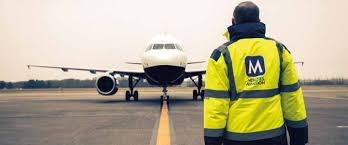The government has deferred awarding ground handling contracts at over 90 airports across the country as the model code of conduct for 2019 Lok Sabha elections is in effect and also because it had received complaints from some bidders.
The bids, which were opened in January, are under examination and the awarding will happen after a new government is formed, officials said. This means successful bidders have less than a month to get security clearance and start operations, for which 30 June has been set as the deadline. “Financial bids were opened in January. We are evaluating the bids. Concessions will be awarded after the polls. We have also received certain complaints, which are being looked into,” said a government official.
The Airports Authority of India (AAI) held the e-auction after introducing new ground handling regulations in October 2018. Complaints are common in such tenders from losing participants, an executive of a company that was the highest bidder for one of the airports, said. The ground handling rules specify that besides AAI units and an Air India joint venture or a subsidiary—Air India Air Transport Services Ltd—airports should hire a third ground handling agency through competitive bidding. Ground handling firms are chosen on the basis of the revenue they offer to share with AAI. The Air India arm or joint venture will have to match the lowest of the royalty the other two pay the AAI as long as government remains the major shareholder. The rules were amended in 2018 to allow Air India’s ground handling agency employed in airports to continue to retain the contract for 36 months after any divestment of government share in the company.
Ground handling has emerged as a big opportunity for specialized firms with the airline industry recording explosive growth. Passenger traffic has grown more than 15% in the last three years. Domestic airlines carried 23.8 million passengers in the January-February period of 2019, which was 7.2% more than the traffic a year ago.
India has ambitious plans to boost air travel fourfold to 1 billion individual trips a year over 15 years, which calls for major investments in airport infrastructure as well as allied services.








